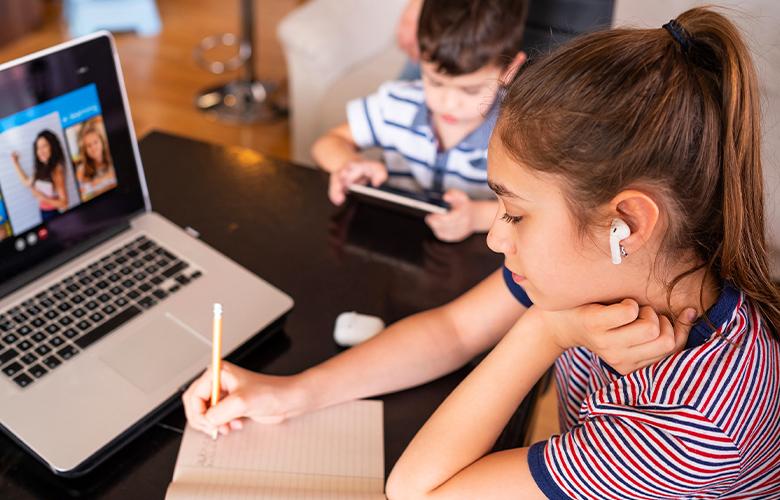
May 18, 2020
When students experience traumatic events—violence, grief, abuse—their ability to cope with emotions and to learn is severely compromised. COVID-19 has brought a new wave of traumatic experiences that are important to recognize and address to help all students learn.
COVID-19 Impact on Children’s Mental Health
The pandemic and its related consequences impact students in various ways:
- Pre-existing trauma: For many children, these new traumatizing conditions may amplify pre-existing conditions that lead to trauma, including extreme poverty, domestic violence (on the rise during COVID-19), and neglect.
- Health impact: Children are watching loved ones struggle with the virus, some even losing their lives. Among children not directly impacted by the virus, many are anxious about the possibility that loves one may become infected and have to be isolated.
- Economic impact: Children are also witnessing their parents losing jobs, experiencing food insecurity, and not being able to access technology to connect with others.
- Social Isolation: Students are disconnected from friends and loves ones, including trusted adults that in normal circumstances can help them cope.
What Can Teachers Do in the Short-Term?
- Build and maintain relationships: Positive relationships with caring adults are important for all children, especially for those experiencing trauma, including COVID-19. When school staff (counselors, athletic coaches, and specialists) make time to interact with students, even virtually, students benefit enormously. Connecting with students via traditional methods, such as phone calls and postcards, is also beneficial. One way to ensure that all students are supported by trusted adults is to follow the Relationship Mapping Strategy.
- Provide Emotional Check-Ins and Supports: During their interactions with students, teachers should find creative ways to help students identify and talk about their emotions. By acknowledging their feelings, students can better manage these emotions, and teachers can better support them through dialogue and activities. Examples of activities include mood meters and mindfulness activities.
- Ensure Structure and Routine: Important emotional scaffolds for students experiencing trauma are daily structures and routines. While harder to do during school closures, it’s not impossible. Educators should aim to provide ongoing opportunities for students to interact with their teachers and peers through predictable, structured schedules (e.g., having a scheduled daily check-in). When possible, educators can also work with families to ensure students have daily structure at home.
By focusing on relationships with trusted adults, emotional supports, and structure and routine, we can help students cope in these difficult times. For more information on supporting students’ mental health needs during COVID-19, see:
- Supporting Children During Coronavirus (COVID19)
- Staying Resilient During COVID-19
- How Can Educators and Families Support Students’ Mental Health and Social Emotional Needs?
| Shai Fuxman is a senior scientist at EDC with expertise in social and emotional learning (SEL) and behavioral health. | |
| Gisela Rots is a public health specialist with a focus on substance misuse prevention. Her work at EDC focuses on providing technical assistance to states and communities to enhance their prevention efforts and supporting trauma-informed prevention efforts. |


Comments
Add new comment